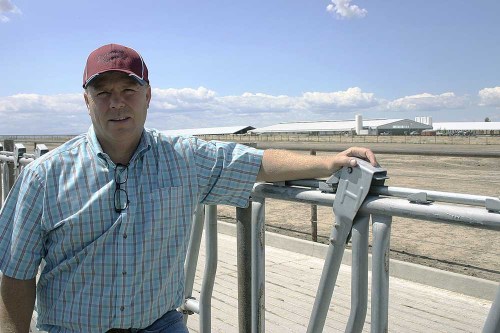Prudential seeks millions more from Easterday bankruptcy pot
Published 9:00 am Tuesday, October 12, 2021
YAKIMA — Prudential Insurance Co. claims the bankrupt Easterday estate owes it more than $9 million, a demand opposing lawyers call unreasonable and if paid will come “out of the hide” of other creditors.
Eastern Washington cattleman Cody Easterday borrowed $50 million from Prudential in 2020, about one year before he filed for bankruptcy as he was being investigated for defrauding Tyson Fresh Meats.
Trending
Prudential recovered with interest the loan out of the $209 million that Farmland Reserve Inc. paid to buy Easterday farms in Benton County.
The New Jersey-based lender, however, says it’s still due nearly $7 million because the 10-year loan was repaid early and $2.1 million because Easterday’s bankruptcy triggered a 12% default interest rate.
Attorneys for the bankrupt Easterday businesses say there is no evidence early payment harmed Prudential and have asked U.S. Bankruptcy Judge Whitman Holt in Yakima to deny the prepayment penalty and default interest.
The attorneys called the formula used to calculate the early payment penalty “unconscionable” and that every dollar paid in default interest is “a dollar that comes out of the hide” of other creditors.
On Wednesday, Oct. 6, Prudential filed a brief responding to accusations it was being unreasonable.
Cody Easterday — along with his wife and parents — were sophisticated borrowers who understood the nature of Prudential’s business, according to the brief.
Trending
“At its core, the prepayment formula employed by Prudential is ubiquitous in the real estate finance industry,” according to Prudential.
The two sides are due to appear in front of Holt on Oct. 20. The resolution will affect how much money is left for other creditors, including Tyson, who was defrauded out of $233 million.
Easterday pleaded guilty to billing Tyson for buying and feeding some 200,000 head of cattle that didn’t exist. The Commodity Futures Trading Commission says Easterday used the payments to cover losses from trading in cattle futures markets.
In a plea deal, Easterday promised to make restitution. His sentencing for wire fraud has been postponed until January to give him time to help sell Easterday assets and raise money for Tyson and other creditors.
Prudential is at the head of the line because its loan was secured by three Easterday farms.
Prudential and Easterday temporarily set aside their differences this summer to allow Farmland Reserve, owned by the Church of Jesus Christ of Latter-Day Saints, to buy the farms without liens.
Prudential contends the prepayment premium was part of an eight-figure commercial loan and not “anything close to conscience shocking.”
Prudential and Easterday farms and ranches also are arguing over whether Prudential should be reimbursed for $377,000 in legal fees and for a $41,000 title report it obtained to make sure it knew everyone who had an interest in the farms in case of a lawsuit.
Equitable Life Insurance Co. made a similar claim related to loans it made to Easterday in 2015 and 2020. Equitable argued it was due $3.2 million in prepayment premiums.
According to court filings, it has agreed to settle for $2.25 million. Holt must approve the agreement.










